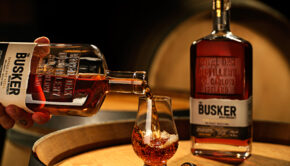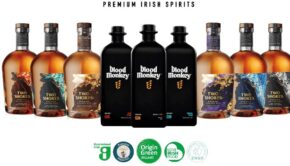ABFI points the way

In a recent submission to Government, ABFI expressed the drinks industry belief that the best way to find impactful, long-term solutions to the problem of alcohol misuse is by working in real partnership with all relevant stakeholders. But the submission also pointed out a number of significant challenges to present restrictions on domestic alcohol advertising.
25 April 2013

In its submission to Government last October entitled Working together for a sustainable and responsible drinks market ABFI outlined some practical policy solutions that the Government should consider to address misuse, encourage responsible consumption and maintain a sustainable drinks market.
Although we’re experiencing a period of declining alcohol intake where average consumption has fallen almost 20% in the last decade, the Alcohol Beverage Federation of Ireland has acknowledged that a culture of alcohol misuse remains among some consumers which “does not benefit the drinks industry, the economy or Irish society”.
It believes that the best way to find impactful, long-term solutions to alcohol misuse is by working in real partnership with all relevant stakeholders and it would therefore like to broaden participation in this aim through a cross-Government initiative that includes contributions from the Department of Health, Justice, Communications, Transport, Sport & Tourism, the Arts etc.
In its submission to Government last October entitled Working together for a sustainable and responsible drinks market ABFI outlined some practical policy solutions that the Government should consider to address misuse, encourage responsible consumption and maintain a sustainable drinks market.
These include:
1. A Government-backed single Code of Practice for alcohol marketing, promotion, sponsorship, supply and sale of alcohol
ABFI proposes a new single Code of Practice for all involved in the marketing, promotion, sponsorship, supply and sale of alcohol.
This Code should incorporate the following proposals:
- A Government-backed governance structure reflecting the appropriate Departments’ responsibilities in the areas above
- Compliance with the Code to be monitored by a representative body incorporating representatives with relevant skills and expertise. The compliance body to report on a regular basis to Government and these reports to be made public
- The compliance body to have an independent chair, complaints panel and procedure
- The Code to have defined penalties for breaches and tiered sanctions reflective of the nature of the breach including repeat offences
- The Code to be backed by public awareness campaigns outlining the complaints procedure and sanctions.
2. Increased responsibility messaging and activities at industry-sponsored events
ABFI recommends that all those involved in sponsorship contracts between rights holders (defined as sports bodies, cultural organisations, promoters, venues ie bars/caterers and alcohol brand owners) to be party to the sponsorship provisions of the new single Code of Practice.
Contracts will be subject to the Code and should incorporate:
- A dedicated and fixed proportion of auditable marketing activity at each event to be allocated to supporting responsible and education through drinkaware.ie and/or brand-led communications
- Compulsory and accredited bar staff with responsible server training
- Comprehensive and independently verified audience profiling at major events to be reported to Government on a regular basis
- Ensuring the full implementation of event management controls in relation to intoxicated persons attending events
- Code to be backed by public awareness campaigns outlining the complaints procedures and sanctions.
3. Expanded multi-stakeholder programme of consumer education and information campaigns to effect attitudinal and behavioural change delivered through drinkaware.ie
The drinks industry is committed to achieving a cultural shift where it is no longer considered socially acceptable to get drunk. Through the drinkaware.ie campaigns, representing €20 million-worth of industry investment, attitudes and awareness have already changed for the better. Today, nine in 10 Irish consumers believe the drinkaware.ie ads make you realise the unacceptability of public drunkenness.
“We now need to build on influencing those attitudes and effecting long-term behavioural change through broader, bolder and more far-reaching consumer information and education campaigns,” stated ABFI, “These should be developed against proven international best practice”.
This will require its members to continue investing in the management and funding of such campaigns and this should encompass government departments and agencies, producers, distributors, retailers, businesses, media, community and non-governmental organisations.
All representatives should have the relevant skills and expertise to develop and deliver effective strategies and programmes. This new structure should be independently chaired.
4. Commencement of the introduction of Irish unit information and pregnancy advice labels on pre-packaged alcohol products
ABFI has re-affirmed its commitment to working with the Government to introduce consumer information relevant to the Irish market on product labels. This should include unit and pregnancy information and responsible drinking messaging.
ABFI recognises the importance of reaching an agreement on an effective strategy to address alcohol misuse and remains ready to discuss these policy proposals with Government at the earliest opportunity.
Significant challenges to present domestic restrictions
However data complied by the industry on alcohol beverage marketing through various communications media indicate a number of significant challenges to any domestic restrictions on alcohol advertising.
These include:-
TV Channels
- 40% of all TV viewing is to TV stations that operate outside this jurisdiction
- 69% of all viewing by under-18s is to TV stations that operate outside this jurisdiction
- 14% of under-18 year-olds view post-9pm programming at other times of the day on personal video recorders
- Of the top 20 TV programmes among four to 17 year-olds, seven are broadcast after 9pm
Radio
- If the proposed post-9pm watershed is implemented, all of the top 10 radio programmes for under-18s would be allowed to carry alcohol advertising because late evening and night-time is the most popular period of the day for young adults to listen to the radio.
Digital
The industry is very conscious of its responsibilities and the dynamic nature of digital marketing. As a result it has compiled a ‘Best Practice Principles Document’ which outlines the measures companies are already undertaking to reduce exposure of young people to alcohol advertising in the digital marketing arena.
What happens in other countries – The Loi Evin?
In France, recent data from ESAPD’s 2011 study released in 2012 showed that since 1999 ‘alcohol use in the last 30 days’ among 15 to 16 year-olds had increased by 7% despite the Loi Evin which bans alcohol advertising. In Ireland for the same period it had decreased by 24%.
Controls on alcohol advertising
Advertising Standards Authority of Ireland – controls and processes complaints on the content of alcohol advertising on TV, radio, outdoor, cinema, print or on paid-for digital platforms
Central Copy Clearance Ireland – mandatory, strict pre-vetting of the content of all alcohol advertising on the above platforms. A team of independent professionals ensures compliance with the ASAI rules.
Alcohol Marketing Communications Monitoring Board – monitors and ensures that alcohol advertising is placed in media which has only an adult audience profile of 75% or greater. Also monitors that where alcohol advertising is permitted it will be limited to no more than 25% of the available space on any occasion.



 Print
Print






Fans 0
Followers